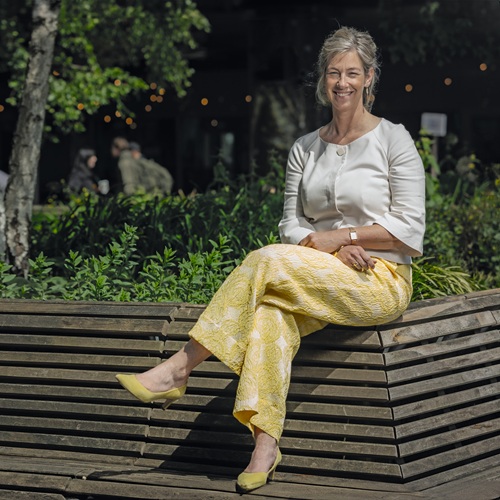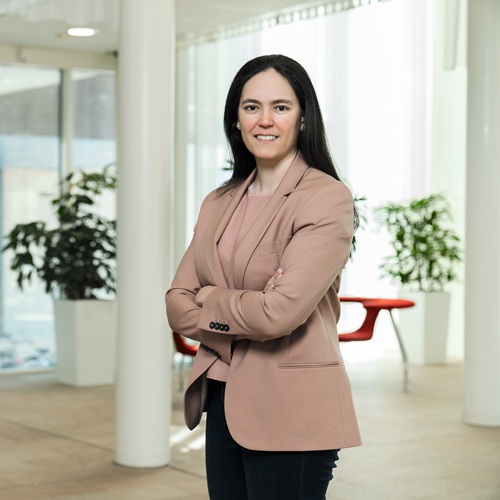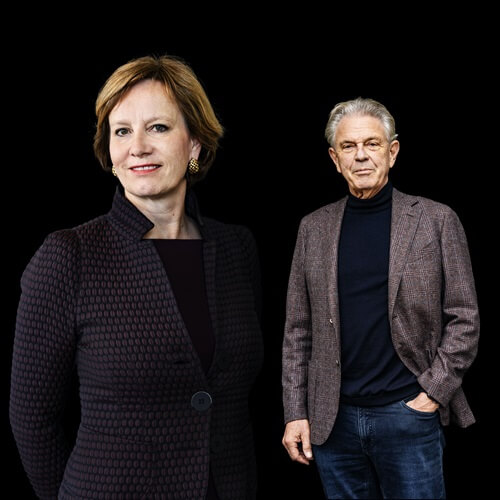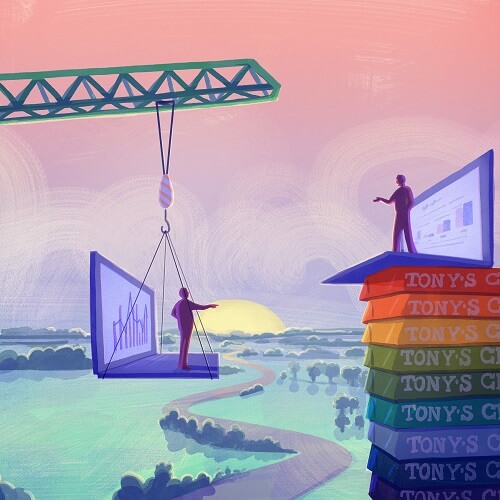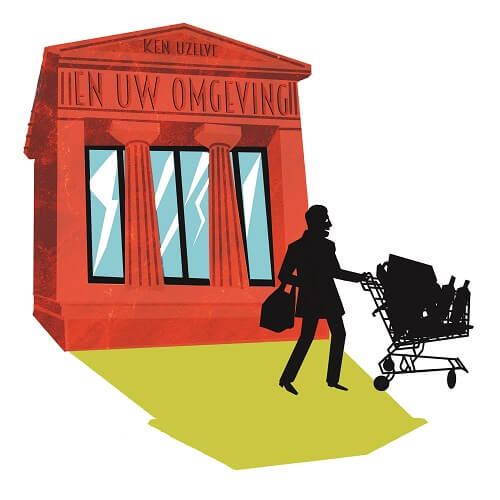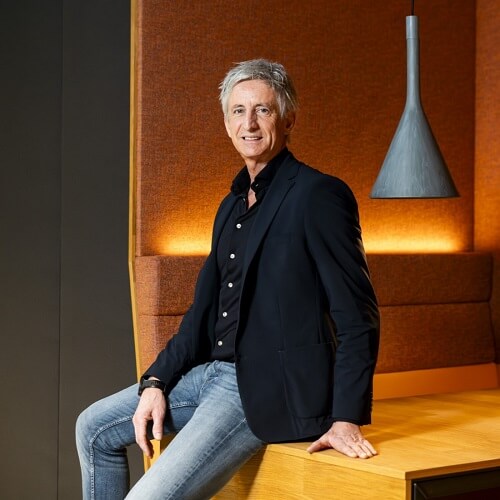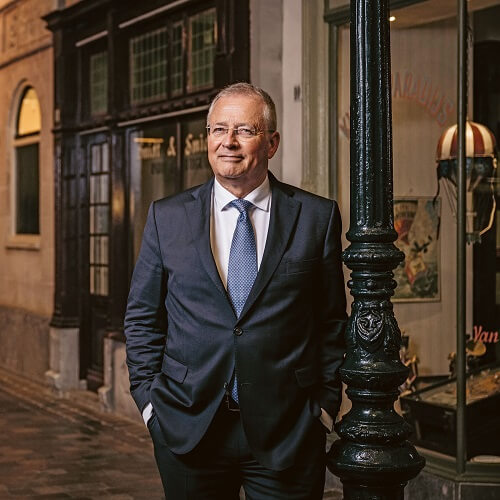Implementation and Transformation
A good strategy is one thing, actually implementing that strategy is quite another. Obviously, the parameters include good people, good leadership, a good HR system. But when it comes to the implementation itself, the past few decades have been a true roller coaster for the chief operating officer (COO) and his/her troops.
At the cradle of this roller coaster are some major trends. At an accelerating pace after the fall of the USSR, companies have started to look internationally for their purchasing and supply chains. Complex factors affect those decisions. Price matters, but so does quality of production, availability of raw materials, other production, and so on. For a few years now, however, the trend of internationalization has been halted: the trade relationship between China, the United States, European countries and Russia has come under increasing pressure.
Both this earlier expansion of the supply chain and the recent setback present COOs with major challenges. First it was ‘am I on the right track?’ Now it is also ‘what if the course I took no longer exists?’ Since 2020 this trend has been reinforced by the threat of pandemics, which can simply endanger companies' access to certain countries: a logistical nightmare.
The second major trend is that of digitalization. That is nothing new, of course. The letter was followed by the wire transfer and then by the fax and telephone. But with the arrival of the Internet combined with fast computers, this evolution has accelerated. ‘Digitalization’ is what we call it, and disruption: business models are changing so fast through digitalization and the rise of artificial intelligence that it is no longer a question of evolution but rather of revolution. It is up to the COO to keep up with this pace in the process of implementation.
This is a hell of a job because it means that such an implementation requires not only its own implementation strategy but also a great deal of entrepreneurship. After all, which IT infrastructure do you choose, does it have to be top of the line or perhaps cheaper than that used by the competition? Do you develop it yourself or do you outsource? Does the same hold for technological progress in production? What about marketing automation, robotization, warehousing, fulfilment and other logistics? How sustainable should your transport be? How local will production need to be?
The COO position may still be a position that, in the hierarchy, is just below the executive board, frequently in the executive committee (the ExCo), but, in terms of responsibilities, the position is not inferior to the top jobs of CEO and CFO.

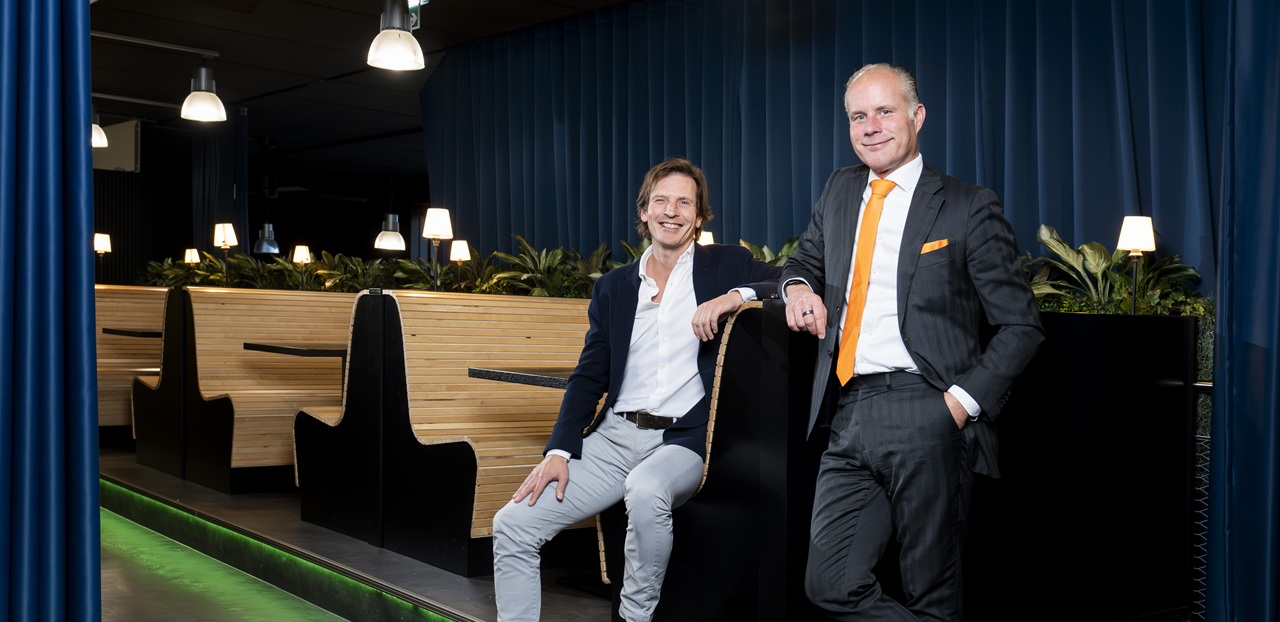
Siete Hamminga and Guus Verhees on Robin Radar's scale-up journey
From birdwatcher to drone detector: Robin Radar has grown into a global company. We are in conversation with the founder who was fifteen years ahead of his time with the smart doorbell, and with the investor who had to endure three years of losses: Siete Hamminga of Robin Radar and Guus Verhees of SHIFT Invest. Together, they look back on Robin Radar's tumultuous scale-up journey: ‘We went from about twenty radars a year to six a week. That requires an agile organization.’
Read moreTough choices and substantial investments are needed to prevent falling further behind economically; the urgency of the Wennink report is undeniable. To ensure the success of plans for future prosperity, it is now important to design a solid financing chain and involve investors, write Tjarda Molenaar and Juul Vaandrager of the Dutch Association of Private Equity Firms.
Managers must be open to the fact that their organization will change no matter what, according to computer science professor Hajo Reijers. The future of work and entrepreneurship requires a broad perspective, hybrid technological landscapes, and above all, flexibility. ‘You have to dare to say goodbye to fixed structures and experiment with new structures that allow you to quickly respond to those changes.’
How Wennink's vision can become a workable strategy
Tough choices and substantial investments are needed to prevent falling further behind economically; the urgency of the Wennink report is undeniable. To ensure the success of plans for future prosperity, it is now important to design a solid financing chain and involve investors, write Tjarda Molenaar and Juul Vaandrager of the Dutch Association of Private Equity Firms.
‘Organizations need to significantly increase their focus on flexibility’
Managers must be open to the fact that their organization will change no matter what, according to computer science professor Hajo Reijers. The future of work and entrepreneurship requires a broad perspective, hybrid technological landscapes, and above all, flexibility. ‘You have to dare to say goodbye to fixed structures and experiment with new structures that allow you to quickly respond to those changes.’
The energy transition, digitalisation, geopolitical shifts – organisations are facing major and complex transformation issues. Huge investments are made, the pressure to achieve results is high and the world is in constant flux. Moreover, this takes place against a background of constraints in time, people and/or technology. All this requires an agile organisation, says Janine Tjassens, business unit leader of CGI Netherlands.
Offshore wind energy is the primary source of large-scale, sustainable electricity for the Netherlands, forming the backbone of the energy transition. However, the deployment of offshore wind energy is at risk of stalling due to rising costs, high interest rates and a lagging demand for sustainably produced electricity. This threatens the country's decarbonization efforts. To overcome this deadlock, a detailed roadmap for electrification and an adjustment to the offshore wind energy rollout are urgently needed, says Ireen Geerbex, Director of Market Development NL Offshore Wind at Vattenfall.
What benefit does the private sector really have from the government? And what does it need? Johan Kerver (evofenedex) discusses these questions with Ingrid Faber, CEO at Faber Group, and Jan Nooitgedagt, member of several supervisory boards. Both see the value of government leadership and direction, but they feel the government is not fully embracing its role. Collaboration, too, is lacking. ‘The gap between the private sector and government is truly astonishing.’
Those who are agile and collaborative stay relevant
The energy transition, digitalisation, geopolitical shifts – organisations are facing major and complex transformation issues. Huge investments are made, the pressure to achieve results is high and the world is in constant flux. Moreover, this takes place against a background of constraints in time, people and/or technology. All this requires an agile organisation, says Janine Tjassens, business unit leader of CGI Netherlands.
How Offshore Wind Farms can become Attractive Again
Offshore wind energy is the primary source of large-scale, sustainable electricity for the Netherlands, forming the backbone of the energy transition. However, the deployment of offshore wind energy is at risk of stalling due to rising costs, high interest rates and a lagging demand for sustainably produced electricity. This threatens the country's decarbonization efforts. To overcome this deadlock, a detailed roadmap for electrification and an adjustment to the offshore wind energy rollout are urgently needed, says Ireen Geerbex, Director of Market Development NL Offshore Wind at Vattenfall.
Ingrid Faber and Jan Nooitgedagt on public-private partnerships: ‘Improvement is often simple’
What benefit does the private sector really have from the government? And what does it need? Johan Kerver (evofenedex) discusses these questions with Ingrid Faber, CEO at Faber Group, and Jan Nooitgedagt, member of several supervisory boards. Both see the value of government leadership and direction, but they feel the government is not fully embracing its role. Collaboration, too, is lacking. ‘The gap between the private sector and government is truly astonishing.’
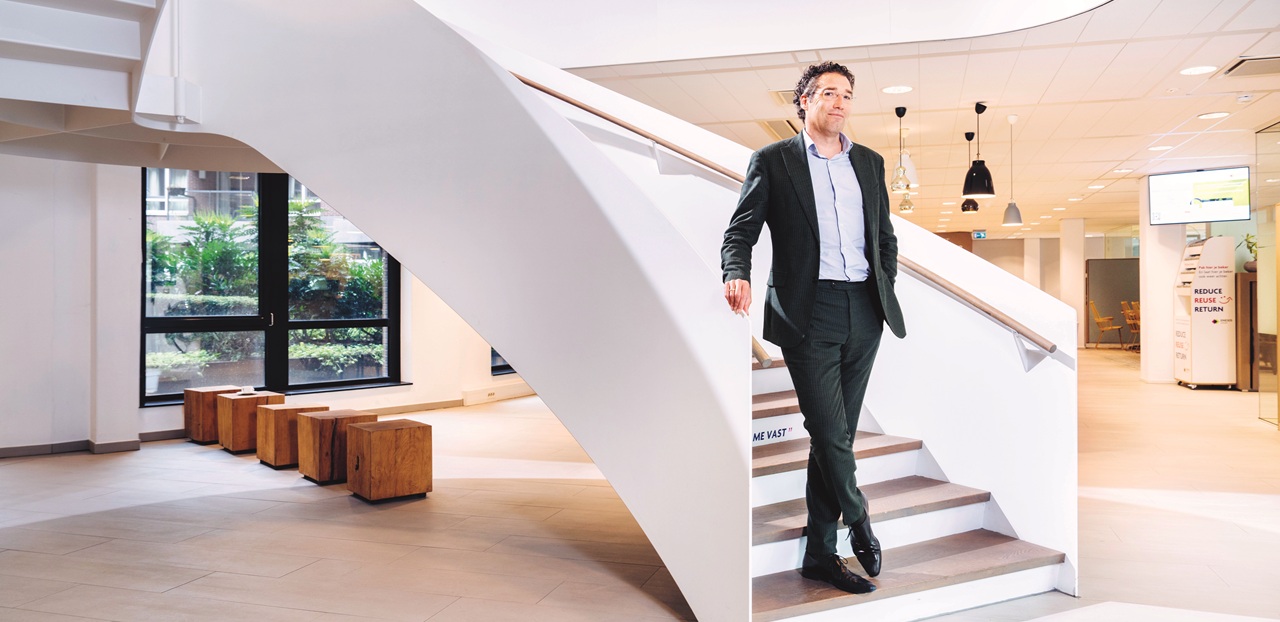
Rutger van der Leeuw (Enexis): ‘More copper in the ground is not the solution’
For two years now Rutger van der Leeuw has been CEO of Enexis, the grid operator responsible for the construction, management, and maintenance of the gas and electricity grids in the south and northeast of the Netherlands. In a sector that is almost constantly under scrutiny, he strives to achieve a balance between social impact and business results. ‘It is our job to be flexible at the front end and to maintain as much calm as possible at the back end.’
Read moreMost read

Paul de Krom (Louwman Group): ‘Mobility Services Are the Future’
The Louwman group is transitioning from car importer to mobility provider. Paul de Krom has been the new CEO of the family-owned company since spring 2023. ‘Our automotive activities are at the essence of this company, but our ambition is mobility for life.'

Marnix van Stiphout: 'ING is Not Your Usual Company'
Marnix van Stiphout has been COO and member of the management Board of banking group ING for a year and a half. During this time, he mainly worked on the realization that operations form an extremely important part of the bank.
Hans Grünfeld and Frank Means on barriers in the energy transition

From Human to Hybrid Decision-Making
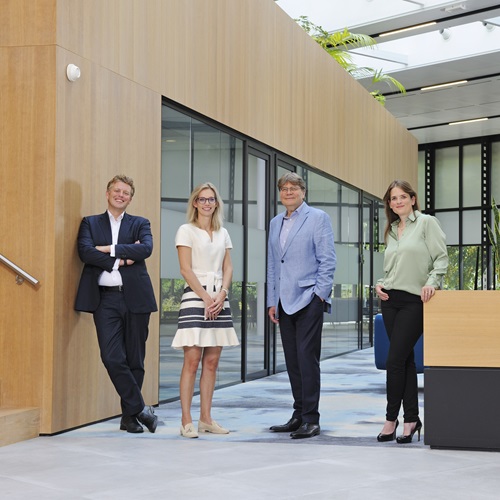
‘ESG as a Bridge Between Industry and Society’
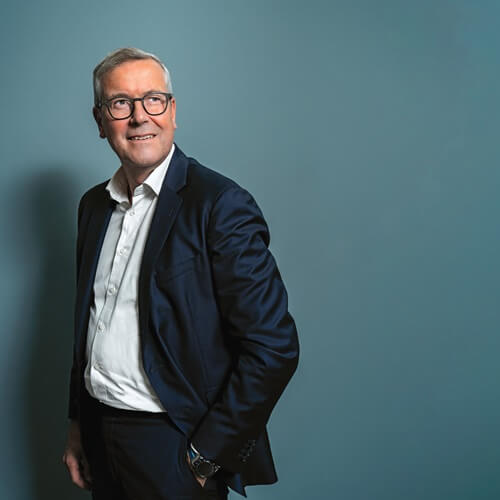
Michel Lamie (Achmea): ‘The Role of CFO Has Become Broader’

ESG Can Bridge the Gap Between Industry and Society

Shareholders as allies in the sustainable transition
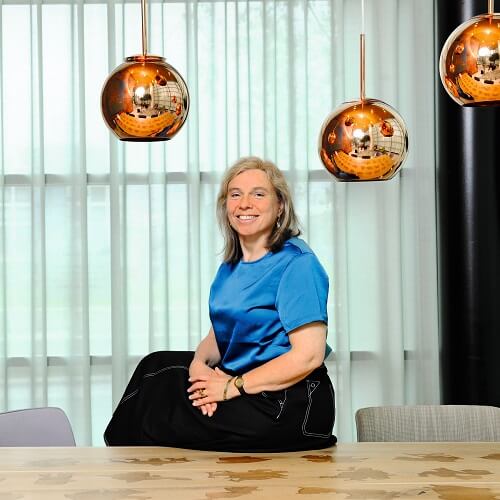
Madeline Dessing (UWV): ‘Meaningful Work Contributes to Employee Well-being’
Gerrit Buitenhuis, Chief Supply Chain Officer (CSCO) at hospitality wholesaler Sligro, says he needs to achieve ‘only’ three things: choose the best suppliers, keep the internal organization in order, and arrange transport to the customer properly. Of course, all those KPIs have specific challenges, but Buitenhuis insists that it is best to keep things as practical as possible. ‘We are not types who devise imposing scenarios or complicated strategic plans at arm’s length.’
The Louwman group is transitioning from car importer to mobility provider. Paul de Krom has been the new CEO of the family-owned company since spring 2023. ‘Our automotive activities are at the essence of this company, but our ambition is mobility for life. We want to offer appropriate mobility solutions to our customers in all stages of life.’
Gerrit Buitenhuis (Sligro): ‘Our Logistics Challenge Is Quite Simple’
Gerrit Buitenhuis, Chief Supply Chain Officer (CSCO) at hospitality wholesaler Sligro, says he needs to achieve ‘only’ three things: choose the best suppliers, keep the internal organization in order, and arrange transport to the customer properly. Of course, all those KPIs have specific challenges, but Buitenhuis insists that it is best to keep things as practical as possible. ‘We are not types who devise imposing scenarios or complicated strategic plans at arm’s length.’
Paul de Krom (Louwman Group): ‘Mobility Services Are the Future’
The Louwman group is transitioning from car importer to mobility provider. Paul de Krom has been the new CEO of the family-owned company since spring 2023. ‘Our automotive activities are at the essence of this company, but our ambition is mobility for life. We want to offer appropriate mobility solutions to our customers in all stages of life.’

Sustainable Design: Eight Phases and a Different Mindset
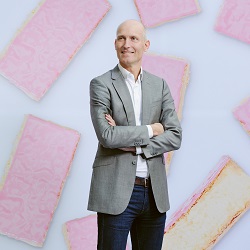
Pieter Heij (HEMA) on an Efficient Logistics Chain

The COO Operates Innovatively And Beyond Established Frameworks
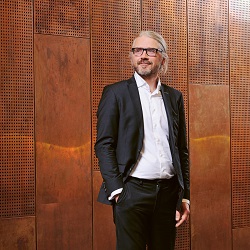
Brian Tjemkes on Public-Private Collaboration: ‘Everyone Is Focused on Their Own Piece of the Puzzle’
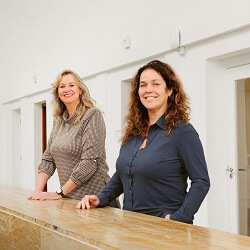
Annemarie van Doorn en Elisabeth Post: ‘Direction Needed In Sustainability Efforts’
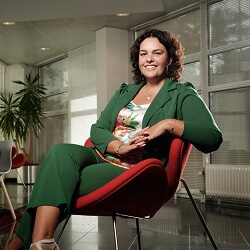

.jpg)
.jpg)
.jpg)
.jpg)
